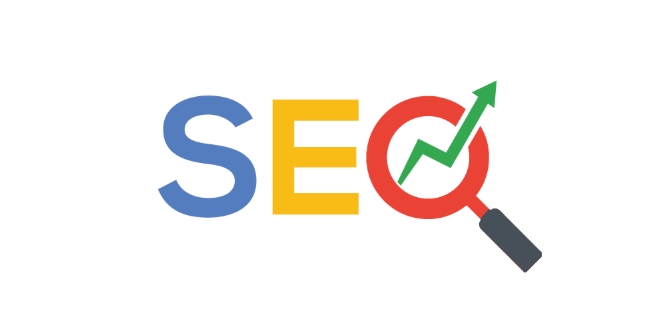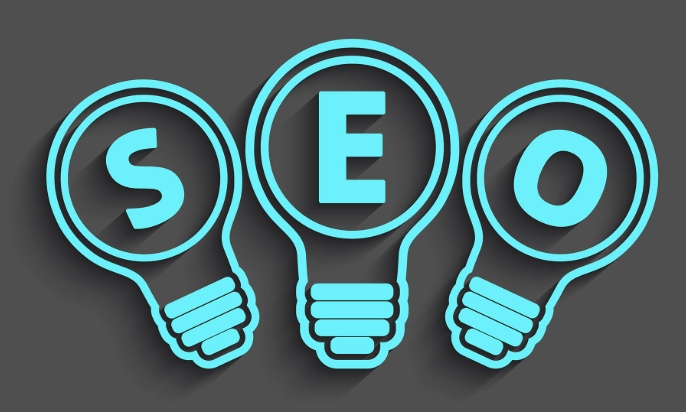SEO stands for Search Engine Optimization, which improves a website’s visibility in search engine results to attract more relevant traffic. 1. It matters because most users don’t go past the first page of results, and top rankings increase trust and credibility. 2. Search engines use bots to crawl and index pages, then rank them based on relevance, quality, user experience, and authority. 3. The three main types are on-page SEO (content and HTML elements), technical SEO (site speed and mobile responsiveness), and off-page SEO (backlinks from reputable sites). 4. Basic tips include using keyword-rich titles, creating useful content, improving site speed, fixing broken links, encouraging backlinks, and ensuring proper indexing through tools like XML sitemaps. Consistent effort in these areas leads to better rankings and organic traffic over time.

SEO stands for Search Engine Optimization. It’s the practice of improving your website so it ranks higher in search engine results like Google. The main goal is to get more visibility and, ultimately, more traffic from people searching for topics related to your business or content.

The better your SEO, the more likely your site will show up near the top when someone types in a relevant search query.

Why Does SEO Matter?
If you run a website—whether it's a blog, an online store, or a service-based business—you want people to find you easily. Most people don’t go past the first page of search results, and many click on one of the top few links. That means if your site isn’t showing up there, you're probably missing out on potential visitors or customers.
Also, good SEO helps build trust. Sites that rank highly are often seen as more credible or authoritative by users.

How Do Search Engines Work?
Search engines like Google use bots (also called crawlers or spiders) to scan and collect information from web pages across the internet. These bots follow links from one page to another and index the content they find.
Once a page is indexed, algorithms analyze it based on hundreds of ranking factors to decide where it should appear in search results. Some key factors include:
- Relevance: How well the content matches what the user is searching for.
- Quality: Whether the content is helpful, accurate, and well-written.
- User Experience: How easy the site is to navigate, how fast it loads, and whether it works well on mobile devices.
- Authority: Whether other reputable websites link back to your page.
So, SEO is really about optimizing your site to align with these factors.
What Are the Main Types of SEO?
There are three core types of SEO you should know about:
On-page SEO: This involves optimizing the actual content and HTML elements of your website, like titles, headings, images, and internal links. It also includes making sure your content answers users’ questions clearly and thoroughly.
Technical SEO: This focuses on the backend of your site—things like site speed, mobile responsiveness, secure connections (HTTPS), and clean URL structures. If your site doesn’t work well technically, even great content might not rank well.
Off-page SEO: This mainly refers to getting other websites to link back to yours. Backlinks act like votes of confidence. The more high-quality sites that link to yours, the more authority you gain in the eyes of search engines.
You need all three working together for the best results.
Basic SEO Tips to Get Started
If you’re new to SEO, here are a few simple things you can start doing right away:
- Use clear, descriptive titles and headings that include keywords people actually search for.
- Write useful, original content that answers common questions in your niche.
- Make sure your site loads quickly and looks good on phones and tablets.
- Fix broken links—both internal ones on your site and external ones pointing to other pages.
- Encourage others to link to your content through outreach or by creating shareable resources.
One thing a lot of people overlook? Just making sure their website is set up correctly for indexing. For example, using an XML sitemap and checking that Google can actually see all your important pages.
That’s basically how SEO works. It’s not magic, but it does take some consistent effort. Start small, focus on quality, and over time, you’ll see your site earn better rankings and more organic traffic.
The above is the detailed content of What is SEO and how does it work. For more information, please follow other related articles on the PHP Chinese website!

Hot AI Tools

Undress AI Tool
Undress images for free

Undresser.AI Undress
AI-powered app for creating realistic nude photos

AI Clothes Remover
Online AI tool for removing clothes from photos.

Clothoff.io
AI clothes remover

Video Face Swap
Swap faces in any video effortlessly with our completely free AI face swap tool!

Hot Article

Hot Tools

Notepad++7.3.1
Easy-to-use and free code editor

SublimeText3 Chinese version
Chinese version, very easy to use

Zend Studio 13.0.1
Powerful PHP integrated development environment

Dreamweaver CS6
Visual web development tools

SublimeText3 Mac version
God-level code editing software (SublimeText3)

Hot Topics
 Are we becoming less curious about SEO?
Jul 07, 2025 am 09:12 AM
Are we becoming less curious about SEO?
Jul 07, 2025 am 09:12 AM
I noticed that a strong comment from Google’s VP of Search, Hyung-Jin Kim, at SMX Next in November 2022 has largely gone unnoticed by the SEO community up to now.He stated (my emphasis):“E-A-T is a template for how we rate an individual site. We do i
 What we're seeing a week into the Google March 2024 core and spam updates
Jul 07, 2025 am 09:16 AM
What we're seeing a week into the Google March 2024 core and spam updates
Jul 07, 2025 am 09:16 AM
We are now just about a week into the Google March 2024 core and spam updates, and boy, has it been busy. In that time, we have seen search ranking volatility, some related to the algorithmic updates and some related to Google issuing manual actions
 Bing Deep Search is officially live for all users
Jul 05, 2025 am 09:32 AM
Bing Deep Search is officially live for all users
Jul 05, 2025 am 09:32 AM
Bing Deep Search, an optional generative AI feature designed to assist users with complex questions that lack straightforward answers, is now fully available to all users. Microsoft has announced that the Deep Search function within Bing Search can n
 Google starts testing AI overviews from SGE in main Google search interface
Jul 05, 2025 am 09:33 AM
Google starts testing AI overviews from SGE in main Google search interface
Jul 05, 2025 am 09:33 AM
Google is currently trialing AI overviews directly within the standard Google Search results, even for users who haven't signed up for the Google Search Generative Experience (SGE) Labs feature. According to a Google spokesperson speaking to Search E
 Is ChatGPT the Google Search killer we've been expecting?
Jul 05, 2025 am 09:14 AM
Is ChatGPT the Google Search killer we've been expecting?
Jul 05, 2025 am 09:14 AM
AltaVista. Lycos. Yahoo. Once upon a time, these were the most popular search engines in the world. Then along came Google. It did Search better. Since around 2002, Google has been the search engine – and its dominance has only grown year after
 Mikhail Parakhin, head of Microsoft Bing Search and Microsoft Advertising steps down
Jul 05, 2025 am 09:15 AM
Mikhail Parakhin, head of Microsoft Bing Search and Microsoft Advertising steps down
Jul 05, 2025 am 09:15 AM
Mikhail Parakhin is leaving his position as the head of Bing Search and Microsoft Advertising, potentially moving into a different role within the company. “Mikhail Parakhin, who leads the company’s Bing search engine and advertising divisions, will
 4 keys to SEO and PPC collaboration in 2024
Jul 06, 2025 am 09:27 AM
4 keys to SEO and PPC collaboration in 2024
Jul 06, 2025 am 09:27 AM
Every year brings a ton of change in digital marketing. In each of my 10 years in the industry, I’ve noticed that the beginning of the year can mark a surge in calls for SEO and PPC to work together.The difference in 2024? There’s an elephant in the
 8 steps to maximize success during global site migrations
Jul 04, 2025 am 09:13 AM
8 steps to maximize success during global site migrations
Jul 04, 2025 am 09:13 AM
Migrating a website is a complex undertaking, but when it involves transitioning global sites across multiple markets, the challenges are exponentially greater. This article provides a comprehensive guide to maximizing success with global site mi






